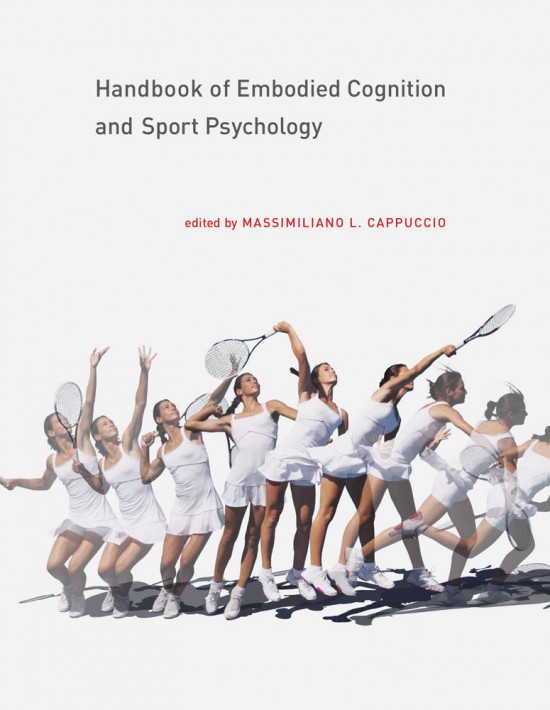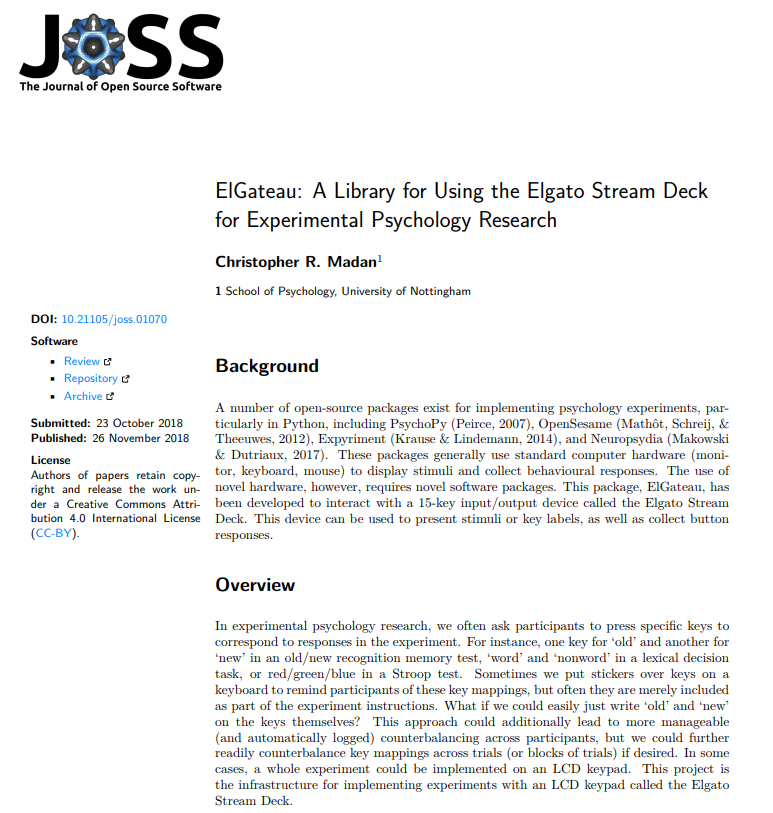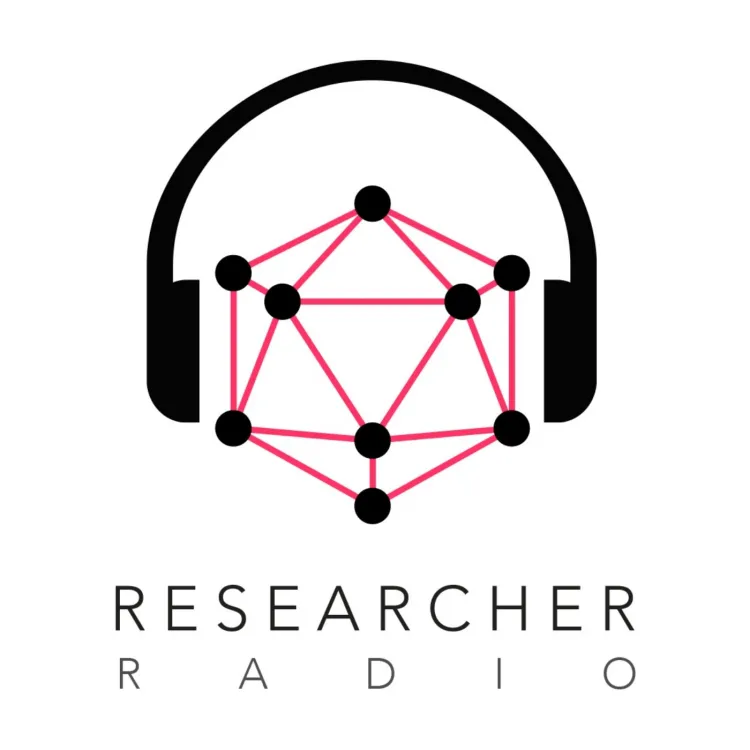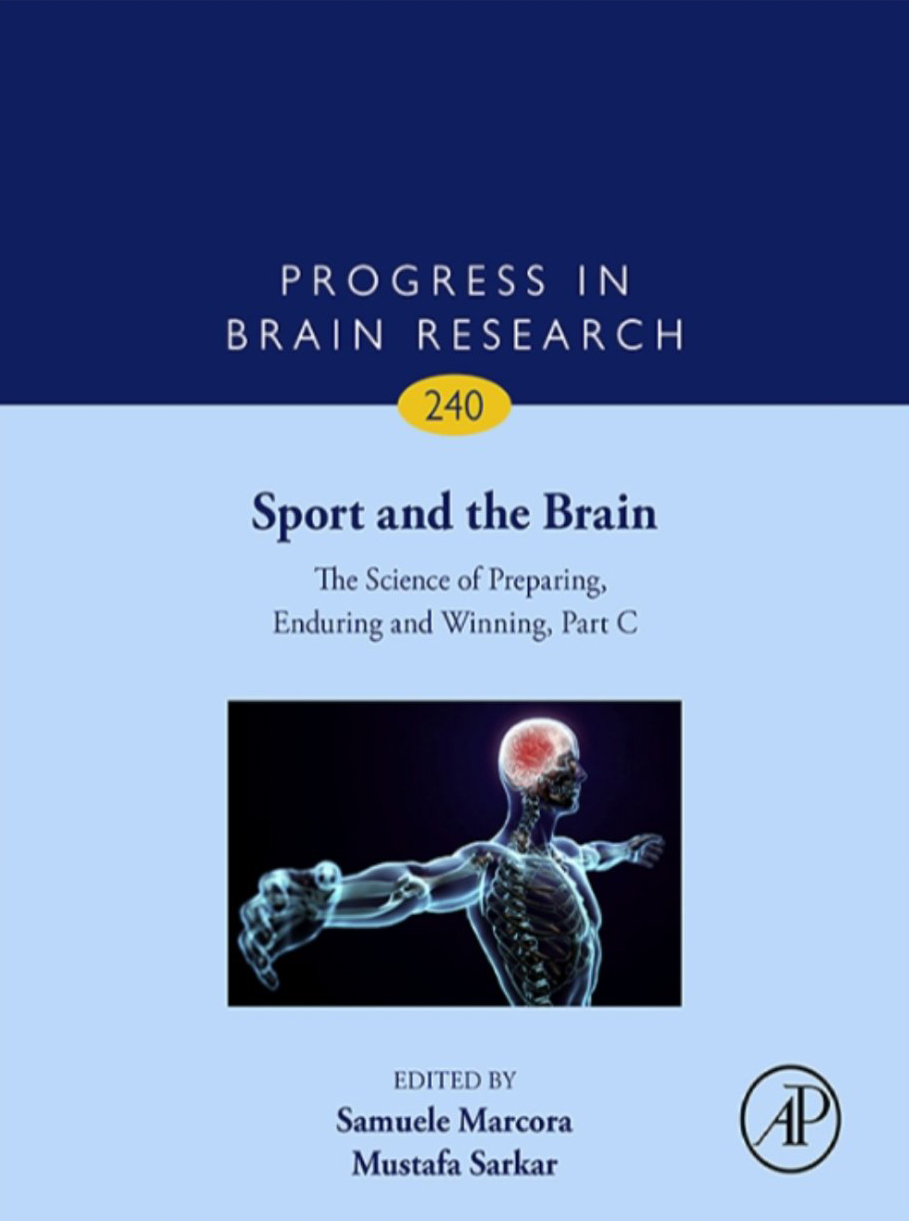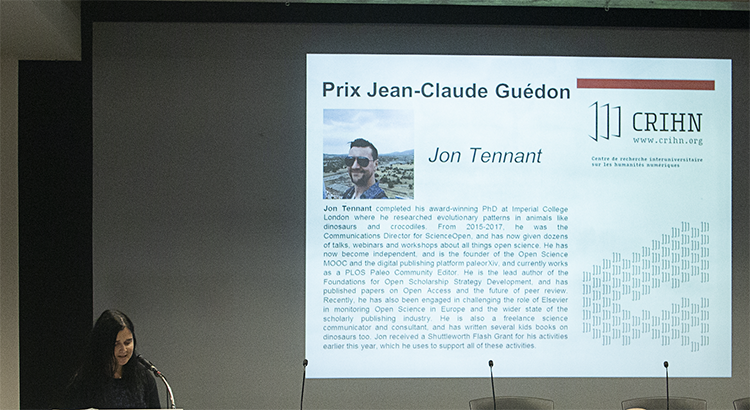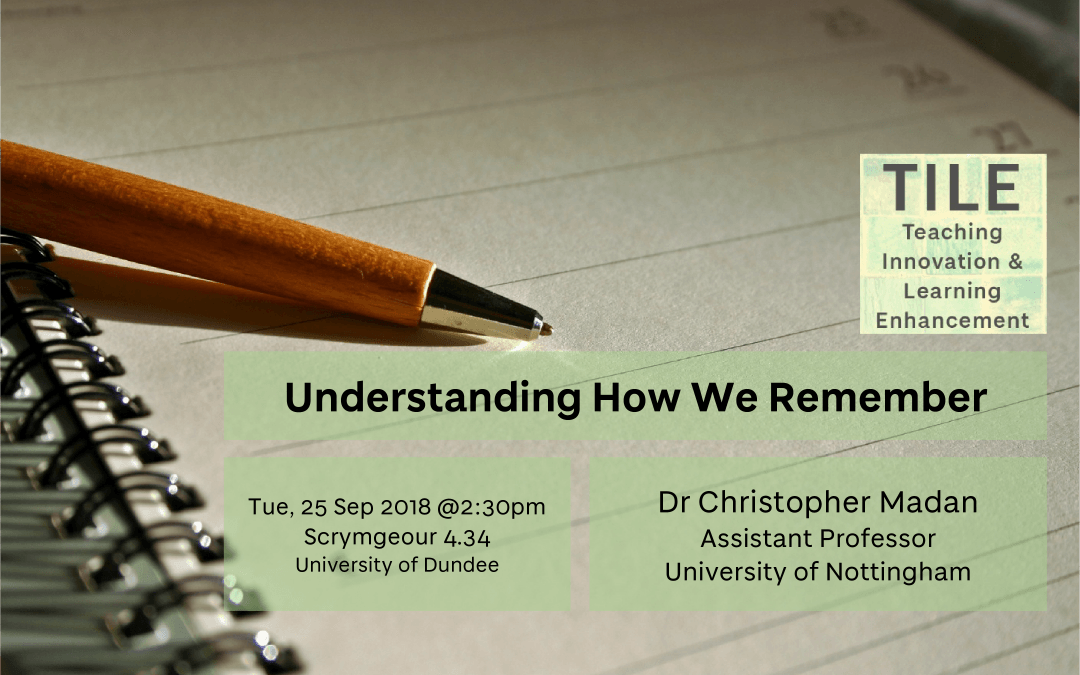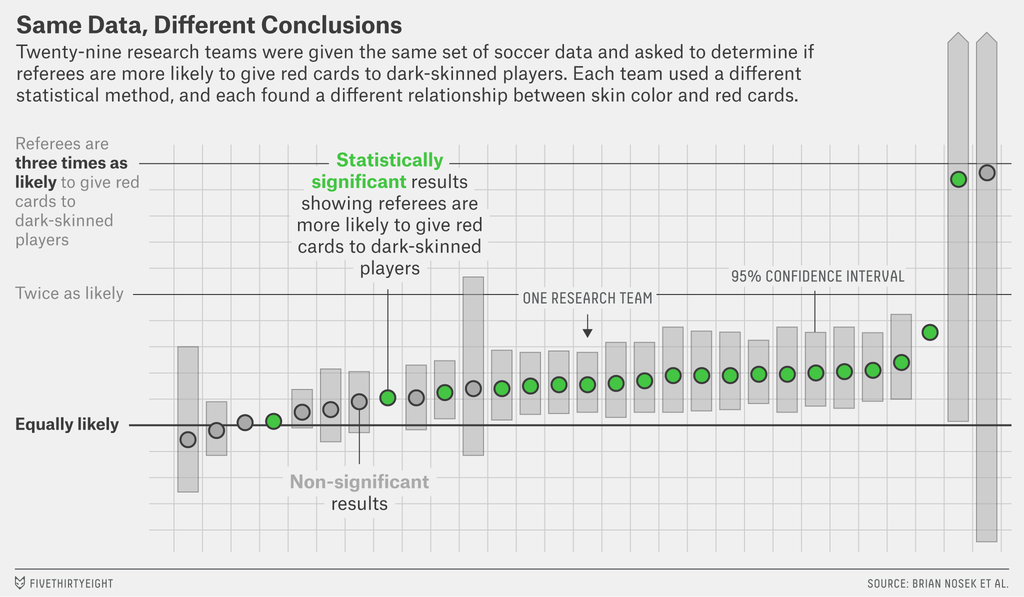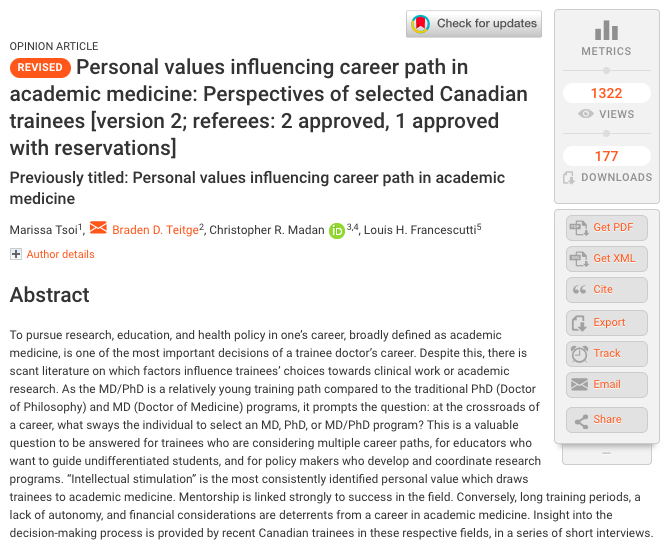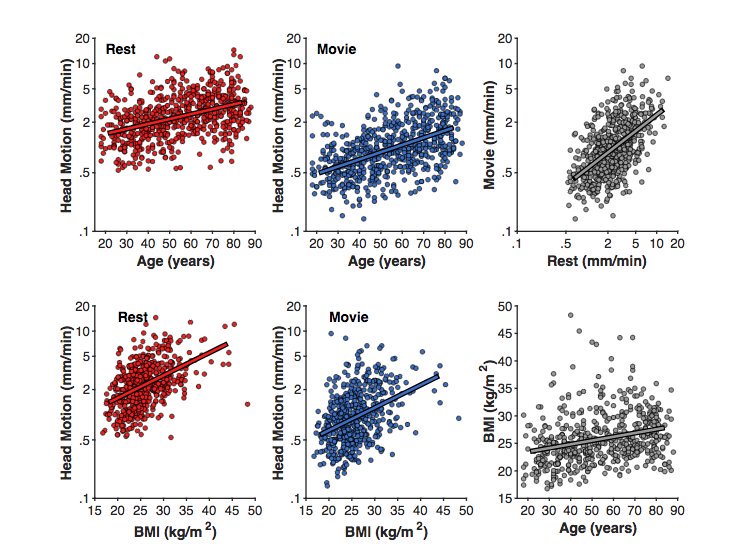Lab Updates
Imagery, Expertise, and Action: A Window into Embodiment
Chapter led by Tadhg MacIntyre (University of Limerick) published in the Handbook of Embodied Cognition and Sport Psychology.
ElGateau: A Library for Using the Elgato Stream Deck for Experimental Psychology Research
New toolbox published in the Journal of Open Source Software.
Alison Heard on RESEARCHER Radio about recent work
“This week’s guest on RESEARCHER Radio is Alison Heard from the University of Calgary. Join us to discover more about language processing. Just how well do we generate language and convey meaning? Just how far can a better understanding of sensorimotor effects take us? And what should you do when you first begin the PhD programme?”
Motor imagery, performance and motor rehabilitation
Chapter led by Tadhg MacIntyre (University of Limerick) published in Progress in Brain Research.
Jean-Claude Guédon Prize
A multi-disciplinary perspective on emergent and future innovations in peer review, led by Jonathan Tennant, recently won the inaugural Jean-Claude Guédon Prize, which was “created to reward the best article published in the last year on open access”.
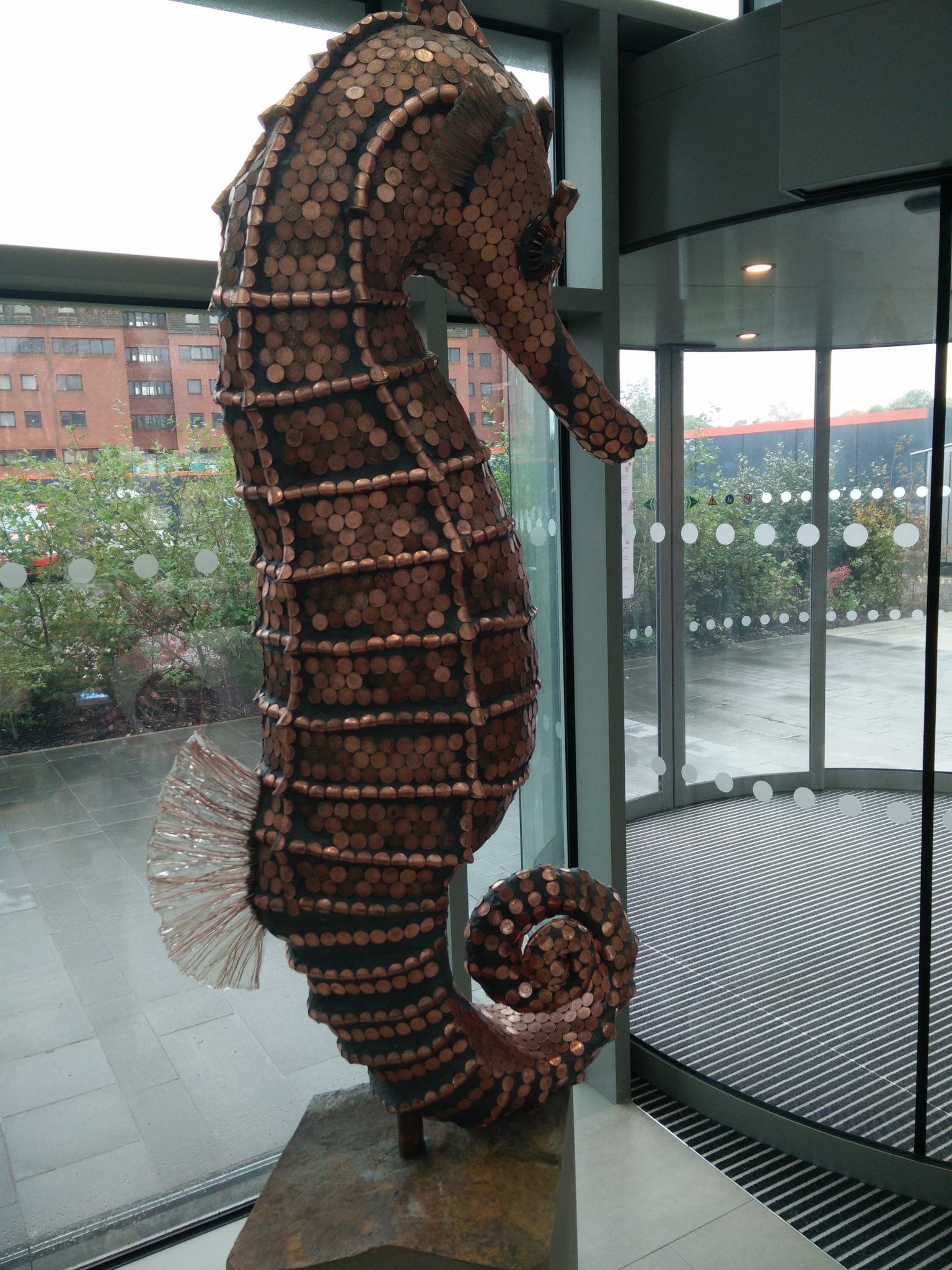
CUBRIC Seminar
Dr. Madan gave an invited talk at the Cardiff University Brain Research Imaging Centre (CUBRIC).
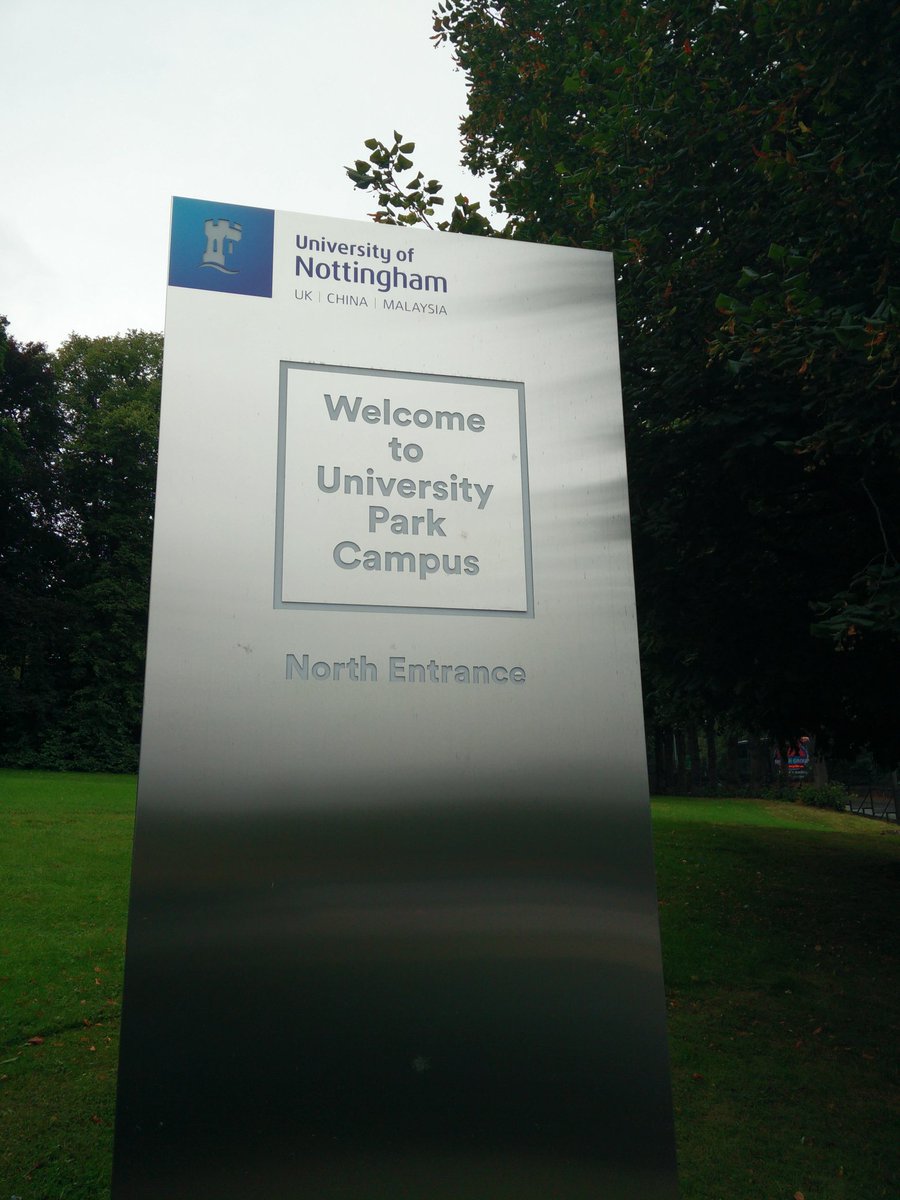
Welcoming three new PhD students today!
Three new PhD students started today! Welcome Yashoda Gopi, Liling Jin, and Ruochong Zhang–all co-supervised with Prof. Ed Wilding.
Interview on ecrLife
Dr. Madan was interviewed for ecrLife.
What do you think about the current publication trend?
What do you think of preprint servers? Do you think they are useful?
Do you think science is communicated well to non-scientists? What are some ways to improve science communication?
As we know, there are more PhD’s graduating every year as compared to available tenure track positions. Do you think there is way to improve this?
What are alternative career options for young scientists apart from applying for tenure track positions?
Understanding How We Remember
Dr Christopher Madan was the September 2018 Teaching Innovation & Learning Enhancement (TILE) network speaker on the topic of “Understanding How We Remember”. A student’s reflections on the talk.
Many Analysts, One Data Set: Making Transparent How Variations in Analytic Choices Affect Results
Large collaborative project to examine the influence of data analysis decisions on experimental results, now published in Advances in Methods and Practices in Psychological Science. Also see coverage in FiveThirtyEight, “Science Isn’t Broken”, and APS Observer, “How Researchers Can Find Different Results Using the Same Data”.
Personal values influencing career path in academic medicine: Perspectives of selected Canadian trainees
“To pursue research, education, and health policy in one’s career, broadly defined as academic medicine, is one of the most important decisions of a trainee doctor’s career. Despite this, there is scant literature on which factors influence trainees’ choices towards clinical work or academic research.”
Age differences in head motion and estimates of cortical morphology
“Cortical morphology is known to differ with age, as measured by cortical thickness, fractal dimensionality, and gyrification. However, head motion during MRI scanning has been shown to influence estimates of cortical thickness as well as increase with age. Studies have also found task-related differences in head motion and relationships between body–mass index (BMI) and head motion.”
